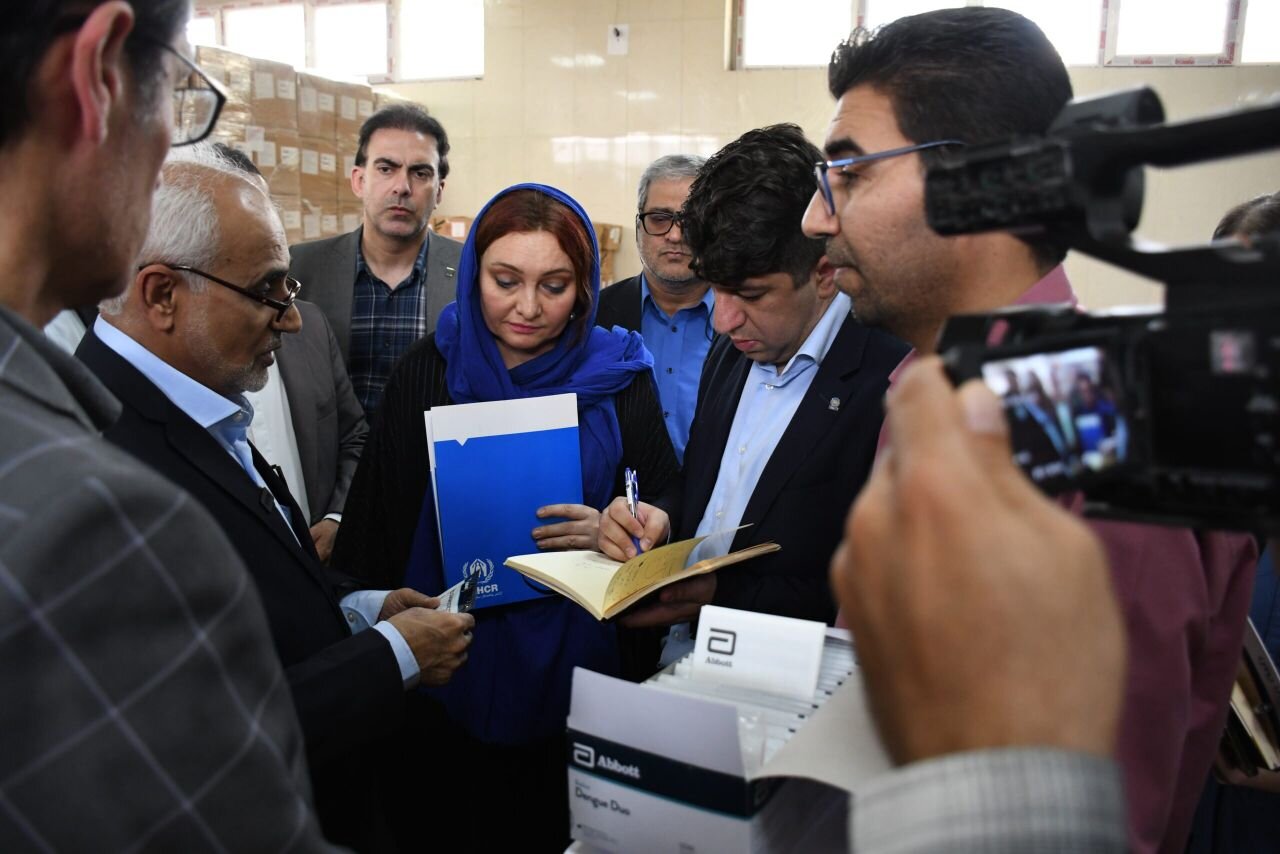UNHCR provides support for Iran’s refugee-inclusive health policies

TEHRAN – The United Nations High Commissioner for Refugees (UNHCR) has donated a consignment of essential medical equipment and supplies to the Ministry of Health and Medical Education (MoHME) to enhance the quality of healthcare services for both refugees and communities that generously host them.
It bolsters Iran’s healthcare capacity in managing critical health challenges including communicable diseases that are a public health concern and affect people, regardless of their nationality or documentation situation, the UNHCR website announced in a press release on August 28.
The consignment is part of a USD 30 million multi-year initiative to support refugee-inclusive health policies in Iran.
Inna Gladkova, Deputy Representative of UNHCR in Iran, lauded Iran’s commitment to inclusive health services: “For over four decades, Iran has ensured that millions of vulnerable individuals, including about 3.8 million displaced Afghans, have access to essential health services alongside the local population.
This handover marks another critical step in the ongoing collaboration between UNHCR, the National Organization for Migration, and the Ministry of Health."
These vital supplies include hundreds of centrifuges and microscopes for laboratories, over a million rapid test kits for communicable diseases, thermal foggers for disease vector control, power generators, and essential medicines.
The tests and treatment kits provided will help the fight against tuberculosis, malaria, and dengue fever, among others. Moreover, they will strengthen Iran’s ongoing effort and regional leadership to eradicate hepatitis B and C.
They will be distributed to health centers and hospitals across the country, with a focus on border regions and provinces hosting large numbers of displaced persons.
This support is especially crucial in a context where Iran’s healthcare system is under pressure in a harsh economic context.
Despite these challenges, Iran continues to showcase extraordinary hospitality, providing healthcare, education, and protection to millions of refugees and foreign nationals. However, the immense strain on the country’s resources calls for sustained international support.
UNHCR urges the international community to step up its support for Iran’s efforts, emphasizing that the scale of the refugee population requires additional resources and assistance to ensure the continued provision of essential services. UNHCR looks forward to continued collaboration with the Government of the Islamic Republic of Iran and other key stakeholders to ensure that refugees and host communities alike can access the healthcare they deserve.
Iran’s support for refugees
Iran’s support for refugees is demonstrated through its inclusive policies, which encompass protection, assistance, education, and healthcare, inspiring the global community and positively impacting the lives of refugees.
As the second-largest refugee-hosting country, Iran is currently host to one of the largest and most protracted refugee populations in the world, the majority of whom are Afghan refugees.
The country is home to over 800,000 registered refugees and some 2.6 million undocumented Afghans.
Currently, more than 500,000 Afghan children - including undocumented Afghans and those who have newly arrived in Iran following the Taliban takeover - are benefitting from Iran’s inclusive education policies, one of the most progressive in the world.
In total, Iran hosts some 4.5 million Afghans of varying status – including resident permit holders, undocumented Afghans, and family passport holders – many of whom have been in the country for an extended period and require support to strengthen their resilience.
Iran’s generous and exceptional services for refugees despite unfair economic sanctions have exceeded expectations and international responsibilities.
The government of Iran has made a very generous effort to provide services to millions of refugees and foreign nationals despite difficult living conditions and oppressive economic sanctions imposed on the country.
MT/MG
